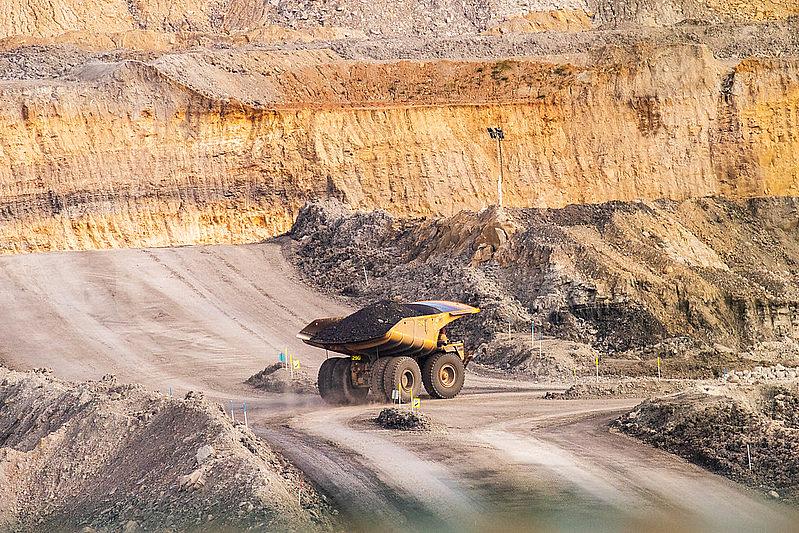Mining towns are used to booms and busts. It’s happening to their health care, too.

Photo by Matt via Creative Commons
Mining is one of the most dangerous industries in the U.S. Not only do mineworkers experience high rates of on-the-job injury and death, but they also face a host of long-term health issues related to their work, including respiratory diseases caused by inhaling certain dusts, cancer and chronic pain. They are also more likely than most Americans to experience substance use disorder and mental health issues.
Some miners follow the work where it goes. Others want to settle down and build a life in the community where they work. But the boom-bust cycles of mining — tied to the price of gold, for example, or the demand for minerals and metals needed to power electric cars — subject many of those communities to booms and busts in their health care access. It makes the prospect of living long-term in many of these communities challenging.
Many mining jobs pay well, and they typically come with good health insurance. When a mine opens, that private insurance can help stabilize the local hospital’s finances. But it can also make it harder for people to find a regular primary care doctor, let alone a specialist. In some cases, providers who would otherwise be scraping by on Medicare and Medicaid rates are eager to take the good-paying mine insurance — often at the expense of other patients.
When a mine closes, it can devastate the local health care infrastructure when that payer source evaporates. Doctors leave or retire, with little incentive for new ones to come to town. Hospitals close. Many former mining towns are scraping by at most on a Federally Qualified Health Center and a hospital — and many are not that lucky. Hospital and doctors’ office closures often leave a sicker-than-average, economically depressed population without the access to the physical and mental health care they need.
And in places where mines are operational, residents grapple with a bifurcated health care landscape, where miners and their families have access to their choice of doctors and, in some cases, specialized mine clinics, while other town residents struggle to access basic care. I previously wrote about some of this when I reported for The Nevada Independent.
In that story, I explored the challenges that retirees in Elko — a mining town in northeastern Nevada, about four hours from Reno and Salt Lake City — experienced accessing health care. The biggest problem, the retirees told me, was finding a doctor who would take their Medicare because the mine insurance paid so well. While some older Americans may be eager to turn 65 to get on Medicare, those in Elko often dread retiring from the mines and losing their employer-sponsored health insurance. Those I interviewed told me essentially that the mine is excellent at providing health care to its employees — but at the expense of everyone else in the community.
The problem of what private insurance pays compared to Medicaid or Medicare — and what that means for who providers will see — is everywhere. But it uniquely impacts mining towns because of how vulnerable they are to an incredibly powerful and cyclical industry and how the industry is tied to the land. A food-processing company might have some discretion over where it opens a new processing plant — but mines can’t just be anywhere. And many of those sites are remote or have challenging geography, making them ill-suited for other kinds of business.
Medicaid expansion under the Affordable Care Act, extra federal dollars to rural health centers and critical-access hospitals, and a new rural hospital designation are among the policies keeping health care access in many of the communities on life support. But many folks living and practicing medicine in these communities say it isn’t enough.
Over the next few months, my reporting will explore how America’s dependence on employer-sponsored health insurance leaves mining communities particularly vulnerable to the business cycle because of the particularly lopsided impact that mines have on the health care infrastructure in their towns. I’ll be traveling to several mining communities across the United States to better understand the impact that mines, for better or for worse, have on their health care.
I plan to tell this story through the eyes of the people who live it — talking to miners, community members, doctors, hospital officials, mining companies and others — while tying it back to the broader policy debates happening in Washington, D.C., around health care. I’ll lean on academic sources as well as policymakers and others.
This isn’t a story about the decline of rural America — but rather how these small mining towns are vulnerable to an incredibly powerful and incredibly cyclical industry, what that means for their health care and what it can teach us about health insurance more broadly in rural communities and across the U.S.
